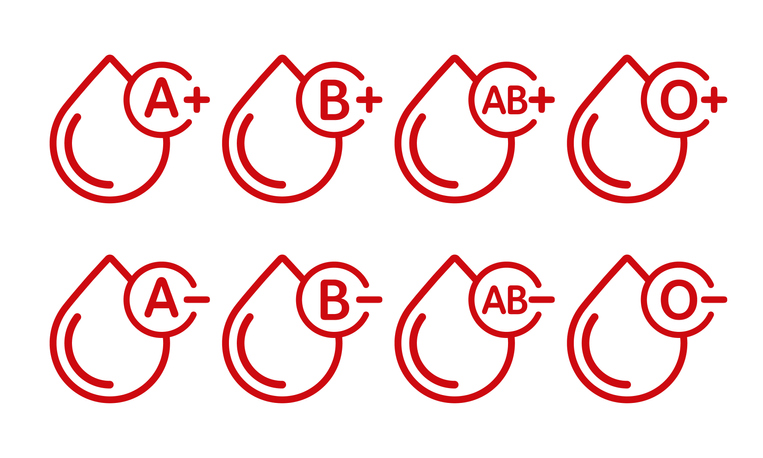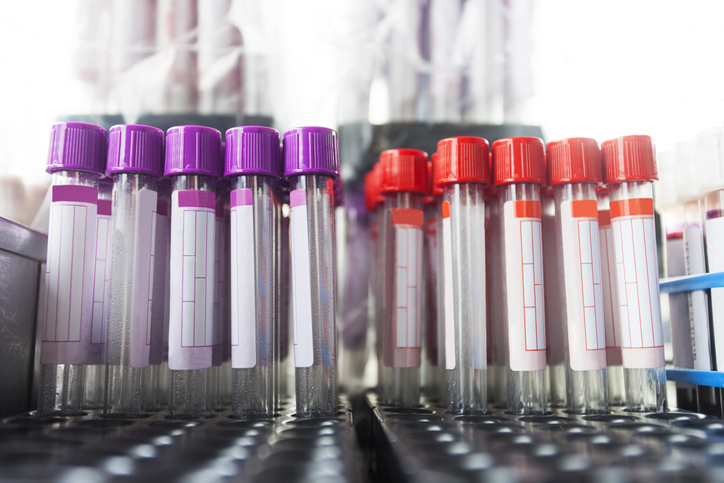
In the early stages of your pregnancy, there are myriad tests to which you’ll be submitted. One of those tests will determine whether you have the Rhesus protein; in other words, whether you are Rh-positive or Rh-negative. This protein lives on the surface of the red blood cells of 85 percent of the population. For those 15 percent, though, there are a few steps you should take in order to ensure the health of your unborn baby.
What is Rh Factor?
The Rhesus protein, also referred to as Rh factor, is shown by the plus (+) or minus (-) sign following your blood type. Being Rh positive simply means that the Rhesus protein is present in your blood cells. Your possession (or not) of this protein has no impact on your overall health. It can, however, affect your pregnancy. If you are Rh positive, there is no need for you to get the RhoGAM shot. Your body has everything it needs in order to produce a healthy baby. If you are Rh negative, however, there is bit more you should know.

Rh Factor and Your Immune System
Every day your body’s immune system “reads” the surface of your cells, looking for anything out of the ordinary. If it finds something it doesn’t recognize, it goes to work building antibodies against the unknown invader. These antibodies are what fight off infection, allergens, or irritants. The next time your body contacts the identified invader, it will be ready to fight back. Rh factor is passed to your baby through both your DNA and that of the baby’s father. If you are Rh-negative but he is Rh-positive, your baby could also be Rh-positive.
How Does it Affect my Baby?
It takes time for your body to develop antibodies against the Rhesus protein. For this reason, the first pregnancy you have may be perfectly healthy. During this pregnancy, however, your body is developing antibodies against the Rh protein, so it may “protect itself” the next time your body encounters it. As an Rh-negative mom-to-be, any subsequent Rh-positive babies born are at risk for hemolytic disease of the fetus and newborn (HFDN). This is a serious condition that can lead to fetal complications such as:
- Anemia
- Jaundice
- Heart disease
- Brain damage
- Death
What is the RhoGAM Shot?
The RhoGAM shot is a solution of antibodies that, when injected at the proper time, prevents your body from seeing your baby’s blood as an outside invader. There are a small number of times that your baby’s blood will enter your blood stream during pregnancy. The RhoGAM shot prevents your body from producing the antibodies created as a reaction to your baby’s blood.
Do I Need to Get a RhoGAM Shot During Pregnancy?
If you are Rh-negative, the answer is yes. You need to get the RhoGAM shot during pregnancy in order to protect the health of your baby. There is also a possibility that you will need continued blood screenings during your first trimester, at 28 weeks, and at delivery to be sure these antibodies are not present. The RhoGAM Shot is made of Rh immune globulin which acts as a vaccine against these antibodies and stops your body from producing them. Taking the precaution of receiving the RhoGAM shot at appropriate intervals during your pregnancy will help to ensure there are no complications.

When Should I Get a RhoGAM Shot?
Your doctor will give you one RhoGAM shot between weeks 26 and 28 of your pregnancy, and then another 72 hours following your delivery. You should also receive a RhoGAM shot following any kind of abdominal trauma, manipulation of the fetus, or invasive procedures such as amniocentesis. You should also make sure your OBGYN is aware of any previous miscarriages or terminated pregnancies, as these pregnancies can trigger the production of antibodies as well.
Can my Baby be Harmed by RhoGAM Injections?
No. The RhoGAM shot is only given to Rh-negative mothers, not their unborn babies. While there is a possibility that your blood will come into contact with your baby at certain points in your pregnancy, the antibodies that are present in the RhoGAM shot have not been shown to be harmful to unborn fetus.
Partnering with Virginia Beach OBGYN
At Virginia Beach OBGYN, we are completely committed to the health of you and your baby throughout the duration of your pregnancy. We know Rh factor can sound like a scary thing, and there was a time when it was. Now, we possess the tools necessary to protect your baby’s health for years to come. If you have any questions about Rh factor or other concerns during your pregnancy, all you must do is pick up the phone. We’re just a phone call away.
